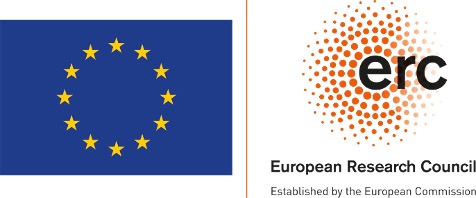In this DynamiTE lunchtime seminar, Visa A . J. Kurki will be presenting his paper ‘Can Nature Hold Rights? It’s not as Easy as you Think’. Kurki is an Associate Professor of Jurisprudence at the University of Helsinki in Finland, and has published widely on topics concerning legal personhood, animal rights, and rights theory. Examples include his book A Theory of Legal Personhood (OUP, 2019).
. J. Kurki will be presenting his paper ‘Can Nature Hold Rights? It’s not as Easy as you Think’. Kurki is an Associate Professor of Jurisprudence at the University of Helsinki in Finland, and has published widely on topics concerning legal personhood, animal rights, and rights theory. Examples include his book A Theory of Legal Personhood (OUP, 2019).
‘Can Nature Hold Rights? It’s not as Easy as you Think’
ABSTRACT: The Rights of Nature movement has recently achieved significant successes in using legal personhood as a tool for environmental protection. Perhaps most famously, the Whanganui River in Aotearoa New Zealand was accorded legal personhood in 2017. These kinds of development have attracted plenty of scholarly interest, but few have scrutinized a foundational underlying question: Can natural areas, such as rivers, or other non-sentient natural entities actually be legal persons?
The case of the Whanganui River is an example of the direct legal personhood model: it purports to grant legal rights to the river directly. Some other jurisdictions have set up legal persons to administer rivers, without declaring the rivers themselves to be legal persons: the indirect legal personhood model. This article offers legal-philosophical arguments for why legal personhood cannot be attributed to rivers directly.
Normally, legal persons can hold claim-rights and be legally wronged. Some legal persons, such as human adults, can also be held legally responsible and exercise legal competences by entering into contracts. Natural entities cannot do any of these things. Hence, they cannot be legal persons directly; rather, their putative direct legal personhood will collapse into indirect legal personhood. Hence, treating natural entities as direct legal persons amounts only to a legal fiction. Such fictions may be justified for symbolic reasons. However, if environmental protection requires setting up a legal person to protect a natural entity, such protection in most cases can be realized without claiming that the natural entity itself would have become a legal person.
The presentation is based on a published paper, that you can find here, but reading in advance is not required.
Please note that the presenter will be in Zoom, but those who are in Oslo are welcome to meet in room GM452. Those who wish to attend can subscribe to the DynamiTE lunchtime seminar mailing list, by sending an email to alejandra.mancilla[at]ifikk.uio.no

'DynamiTE lunchtime seminars' are a part of the project 'Dynamic Territories'. This project has received funding from the European Research Council (ERC) under the European Union’s Horizon 2020 research and innovation programme (grant agreement No 948964).